I thought I was going to have lots of time during my recovery and recuperation to write my post about the clinic, and to finish another couple of posts I have begun. However, I was kept occupied at the hospital and convalescence home by resting and listening to music, self care and socializing with my fellow patients and my lovely visitors. I also spent a significant amount of my time working, from my bed, on organizing for Saskatchewan's 3rd annual Trans* Awareness Week, and for our Time 4 Rights campaign. Once home and settled back in Saskatoon, the organizing has intensified. I was asked by our chief organizer, Joe Wickenhauser, if I could contribute a video to encourage participation in the events we were planning, and so I did. Here it is:
Then, yesterday we had an early kick off to Trans* Awareness Week with an historic meeting to discuss trans human rights. The strong panel, organized and chaired by the outstanding Joe Wickenhauser included David Arnot, Chief Commissioner for the Saskatchewan Human Rights Commission, two members of the Legislature; Jennifer Campeau Sask Party MLA and David Forbes, NDP MLA, the outspoken Alex Wilson professor at the UofS and expert on Two Spirit identity, and transman Jai Richards Mental Health Therapist and ex-Director of the ACC.
I counted over 50 people jammed into the Avenue Community Centre. More than a dozen young people, half a dozen from the media, several trans people, political aides, educators and allies were in attendance. Joe began by acknowledging Treaty 6 Territory, and later Alex Wilson reminded us that for millennia before the coming of the white settlers, the First Nations peoples had honoured their gender variant two spirit people. Judge Arnot tried to dominate the conversation and made an increasingly unconvincing case for leaving the Saskatchewan Code of Human Rights as it is. He discredited himself with his attempts to have the last word after the uncompromising Alex Wilson made a devastating critique of the colonial system of systemic violence perpetuated by white male supremacists. Judge Arnot's attempts to claim privilege were thwarted by the polite but firm Joe with the assistance of the audience showing their support with their applause. Yet, on the whole the atmosphere was one of engagement and respect. David Forbes reviewed the efforts of the NDP to amend the Human Rights Code, and challenged some of Arnot's assertions. Jai Richards made some excellent points about the need to educate the medical professionals of the province, and review the treatment of the transgender community by Sask Health, as well as pointing out the need for reform in the way gender change is accommodated for identity documents.
| After the prepared topics, the public were invited to ask our questions. I made an emotional presentation, reading from a message I had received from a trans woman I know in dire straits of workplace abuse, and asking what concrete steps Jennifer Campeau thought the government could take to help. Many in the audience were in tears, and Jennifer was shaken. She promised dialogue. Several speakers elicited enthusiastic applause from the audience pointing out inconsistencies in Chief Justice Arnot's justifications and in the inadequacy of the Sask Party response. Ken Norman, the first Chief Commissioner of the Saskatchewan Human Rights Commission was in the audience and politely took Chief Commissioner Arnot to task on several legal points. He gave us some interesting historical background on the wording, how the contentious clause ‘“sex equals gender”, different from other provincial Codes, had been included in order to exclude gays from protection under the original Code, and how he had been laughed at in the 1970s by both sides of the Legislature for suggesting protection be provided to homosexuals. I came away feeling I have reason to hope this dialogue marks the beginning of a serious rethinking of the government position. | I sent out a letter to about 10 transgender individuals I know in the community who avoid attention or involvement in trans* activism, trying to encourage them as “well integrated or useful members of society” to make an exception to their reticence and help in some way with our human rights campaign. A woman who had been a mentor to me when I first came out, and who, after a long series of unjustly unsuccessful job interviews had found what I had thought was her dream job, sent me this heartbreaking reply, which I shared, anonymously and with her permission, with the panel: "Hi Miki, I'm working most of those days and can't make it. My life is not something that should be shared as "well integrated or useful members of society" at my job I get called names... low grade linguistic errors like calling me 'it', he his him freak. I get treated like the plague by everyone but management. The office girls run a service to let people know when I am in the bathroom so other girls stay out when I am in there. I have been threatened with physical violence twice now at work. Im suicidal, depressed and abhor being awake. Every time I read about one of my sister's getting SRS or FFS thtows me into month long depression. I love what you are doing for the community and support you from here. Realistically I don't think that I can talk about this with the general public without making what I feel many fold worse. I'm sorry." |
It's going to be a little while before I finish the other posts I have begun writing. This morning I did a radio interview for CBC Saskatchewan Weekend. Now I have speeches to prepare, a presentation to write for the Trans Monologues in Regina next Friday, and of course post-surgery self-care. Today I also want to make another batch of sauerkraut and kimchi; one day I'll write about how I've learned to transition vegetables into old-style pickles using traditional natural fermentation techniques. Please keep checking my online journal, there's more to come!

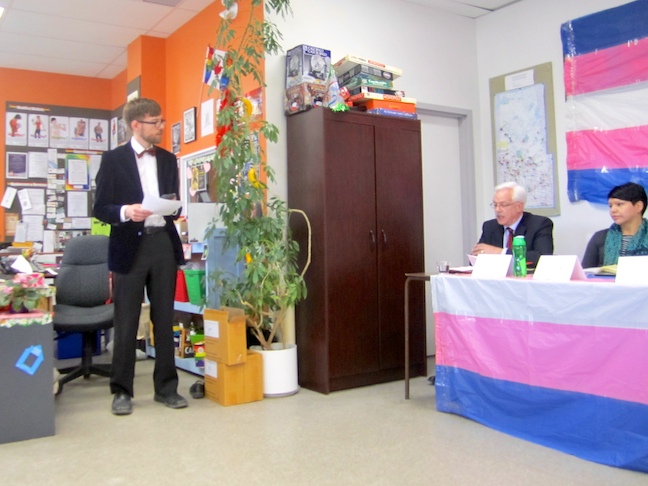
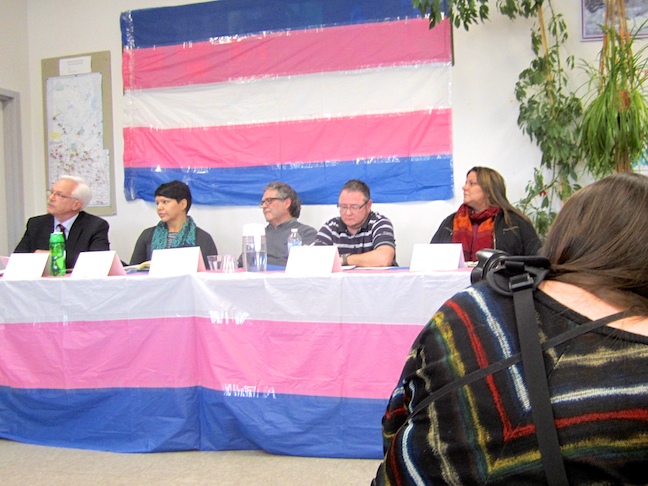
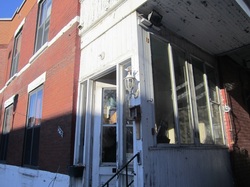
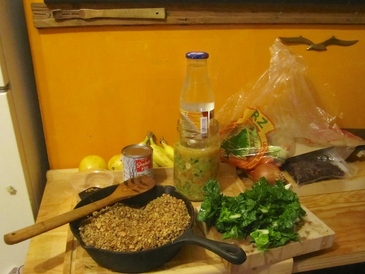
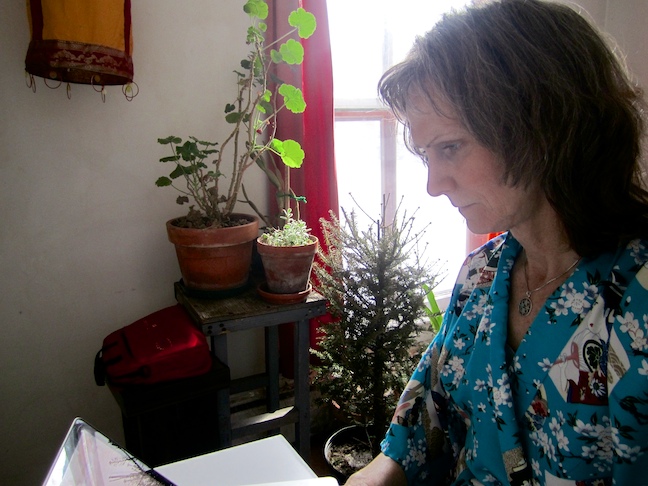

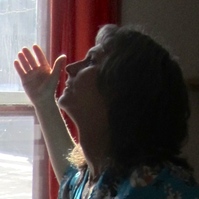
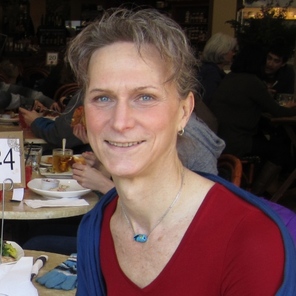
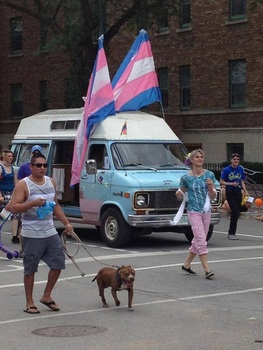
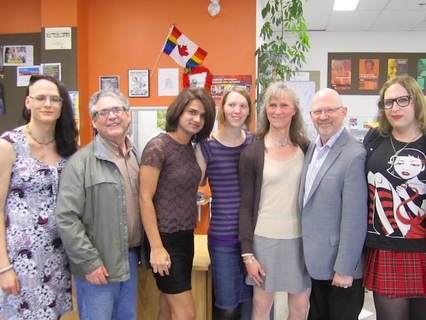
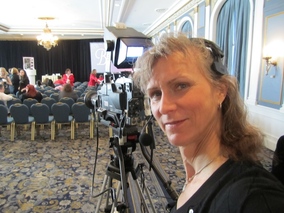
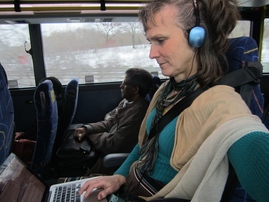
 RSS Feed
RSS Feed